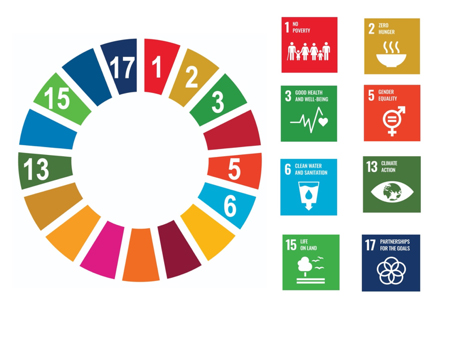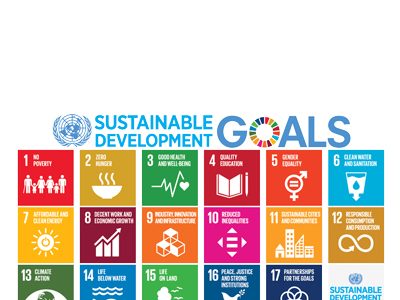Author: Meryl Jagarnath
The 2030 Agenda for sustainable development and the Sustainable Development Goals (SDGs) present a new coherent framework for including natural, social and economic considerations in planning, research policy and practice. Implementers, such as researchers, policymakers, practitioners and citizens, are fundamental to the SDG agenda. For the SDGs and targets to be coherent and to be achieved, they cannot be seen as separate entities or silos. Therefore, implementers need to able to theorize, conceptualize and visualize the linkages between the goals and their respective targets and indicators, so that the 17 SDGs can be seen as transforming sub-Saharan Africa. This transformation depends on the availability of scientific evidence, quality education and lifelong learning. These linkages are demonstrated in BRECcIA research projects and activities, which reveals the inter-connections between food security, water security, and SDG goals, through innovations in research and learning.
Each early career researcher (ECR) leads their own research project. The overarching aim of these projects is to contribute to food and water security and links to various SDGs targets such as No Poverty (SDG 1), Zero Hunger (SDG 2), Good Health (SDG 3), Gender Equality (SDG 5), Clean Water (SDG 6), Climate Action (SDG 13), Life on Land (SDG 15,) and Partnerships (SDG 17) in Ghana, Kenya and Malawi.
Research is currently being carried out in a diverse range of topics such as agricultural production, water resources and quality, land use change, land restoration, livelihoods, climate change impacts and adaptation, invasive alien species, resilience and policy. Research is also carried out in areas related to SDGs, for example enterprise, culture and society by investigating the role of women in agricultural processing, and communities’ food beliefs and preferences. BRECcIA also contributes to learning through capacity building and training activities, workshops and summer schools covering a range of technical skills in analysis and modelling, and also ‘soft skills’ such as communication, collaboration, leadership, and reflective practice.
Now that BRECcIA is linked to SDG targets at the research level, future activities will be carried out to maximize the synergies and minimize the trade-offs within and between SDGs, and ways to contribute to implementation, monitoring and evaluation of SDGs to improve food and water security. In this way, BRECcIA aims to contribute to research, learning, and policy that informs the direction and implementation of SDGs related to food and water security in sub-Saharan Africa across multiple scales with a range of interdisciplinary and collaborative research projects and capacity building activities.


